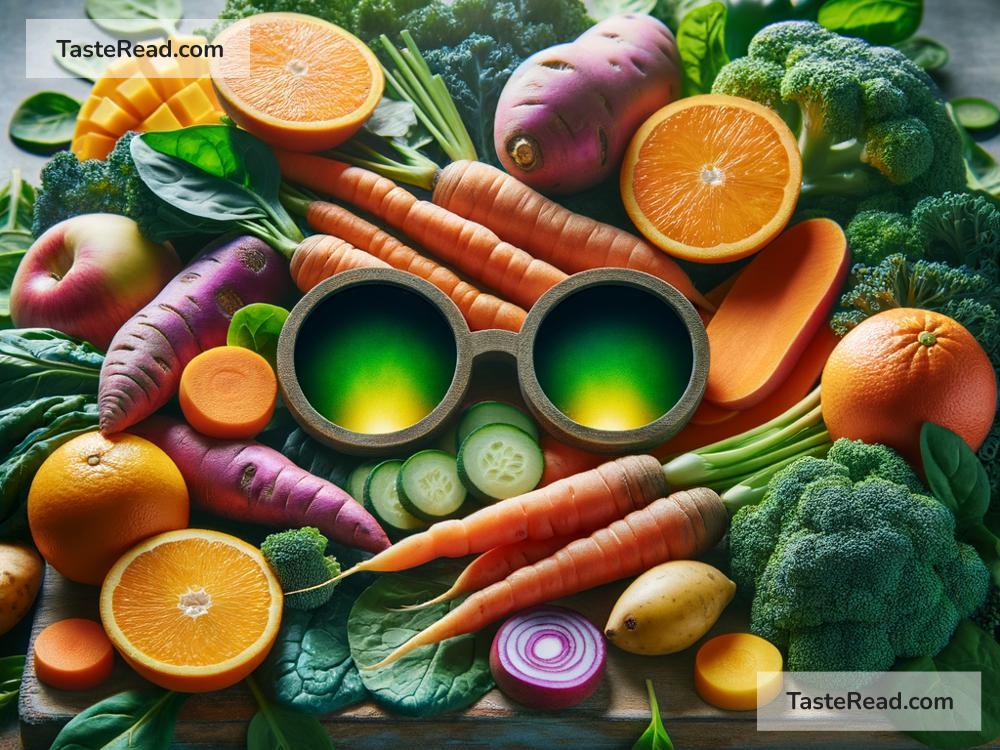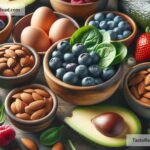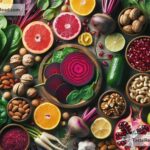Foods That Enhance Night Vision: Eat Your Way to Better Eyesight at Night
Do you ever find yourself squinting in the dark, struggling to see clearly? If you’ve ever wished for super-powered night vision, here’s some good news: certain foods can improve your ability to see in low-light conditions! While you won’t gain superhero-like vision overnight, eating a diet rich in essential nutrients can help your eyes stay healthy and perform better in dim lighting.
In this article, we’ll explore some of the best foods for enhancing night vision—using simple language that’s easy to understand and enjoy.
Why Night Vision Matters
Night vision refers to your ability to see in low-light settings, such as at dusk, when it’s cloudy, or in poorly lit environments at night. Your eyes rely on several parts, including the retina and its light-sensitive cells, to function in the dark. To support these cells, your body needs vitamins and minerals that aid in the production of “visual purple,” also known as rhodopsin—a pigment crucial for night vision.
Without the right nutrients, your eyes might struggle, leading to blurry vision, difficulty navigating in dim spaces, or discomfort. Fortunately, adding certain foods to your meals can make a big difference.
1. Carrots: The Classic Eye Food
Carrots are a fan favorite when it comes to boosting eye health. These crunchy orange veggies are packed with beta-carotene, which is converted into vitamin A in your body. Vitamin A plays a key role in helping your eyes adjust to darkness because it supports the production of rhodopsin.
Try adding raw carrots to your salads, blending them into smoothies, or munching on them as a snack to keep your eyes strong and healthy.
2. Sweet Potatoes: A Vitamin A Superstar
Sweet potatoes have a similar nutrient profile to carrots, with tons of beta-carotene. Their natural sweetness makes them a delicious addition to meals—think mashed sweet potatoes, baked fries, or roasted wedges.
If carrots aren’t your favorite, sweet potatoes are an excellent alternative for getting your daily boost of vitamin A.
3. Spinach and Kale: Leafy Greens for Night Vision
Spinach and kale might not sound like obvious choices for night vision, but these leafy greens are full of lutein and zeaxanthin. These antioxidants protect your retina and enhance your ability to see in dim light. Green veggies are also rich in vitamin A!
Whether you toss spinach into a smoothie, sauté kale with garlic, or make a leafy salad, you’re helping your eyes stay sharp and ready for action—even in the dark.
4. Eggs: A Versatile Source of Eye Nutrients
Eggs are a powerhouse of nutrients for eye health. They contain vitamin A, lutein, and zeaxanthin—all of which are vital for your ability to see at night. Plus, eggs contain zinc, a mineral that supports the retina and helps produce melanin, a pigment that protects your eyes.
Enjoy eggs boiled, scrambled, or in an omelet to make them part of your eye-friendly diet.
5. Fish: Omega-3s for Clear Vision
Fatty fish like salmon, tuna, and mackerel are fantastic for your eyes, especially for low-light conditions. They are rich in omega-3 fatty acids, which protect the delicate cells in your retina and prevent dryness. DHA (a type of omega-3) also supports your overall eye health, including your ability to see in dim light.
Grilled salmon or tuna steaks make a tasty, eye-boosting meal, while canned fish is a budget-friendly option for meals or snacks.
6. Oranges and Other Citrus Fruits: Vitamin C Boost
Vitamin C isn’t just great for your immune system—it’s also a key nutrient for your eyes! Citrus fruits like oranges, lemons, and grapefruits help prevent damage to your eyes caused by aging and support the blood vessels in your eyes. Healthy vessels mean better-functioning retinas, which will help you see more clearly when light is low.
Add oranges to your breakfast or whip up a fresh citrus juice for a sweet treat that helps your night vision.
7. Bell Peppers: Bright and Beneficial
Bell peppers, especially the vibrant orange and yellow types, contain vitamin A, lutein, and other nutrients that enhance eye health. Their crunchy texture and sweet flavor make them a perfect snack, or you can toss them into a stir-fry for a bright, nutrient-packed dish.
8. Blueberries: Tiny Fruits with Big Eye Benefits
Blueberries are rich in antioxidants that protect your eyes from damage caused by free radicals. These tiny fruits also improve circulation to the retina, which is crucial for night vision. Studies suggest that blueberries can even improve adaptation to darkness!
Snack on fresh blueberries or use them in smoothies, oatmeal, or desserts to enjoy their eye-friendly benefits.
Feeding Your Eyes for the Future
When it comes to night vision, eating the right foods can make a noticeable difference—especially if you include them in your daily diet. Carrots, sweet potatoes, spinach, eggs, fish, citrus fruits, bell peppers, and blueberries all provide essential nutrients that support your eyesight. By making these foods a regular part of your meals, you’re investing in your eye health for years to come.
And remember, good nutrition is only one part of maintaining healthy vision. Stay hydrated, protect your eyes from bright screens, and get regular eye checkups. Combine these habits with a nutrient-rich diet, and you’ll be seeing better—even when the lights are low!


